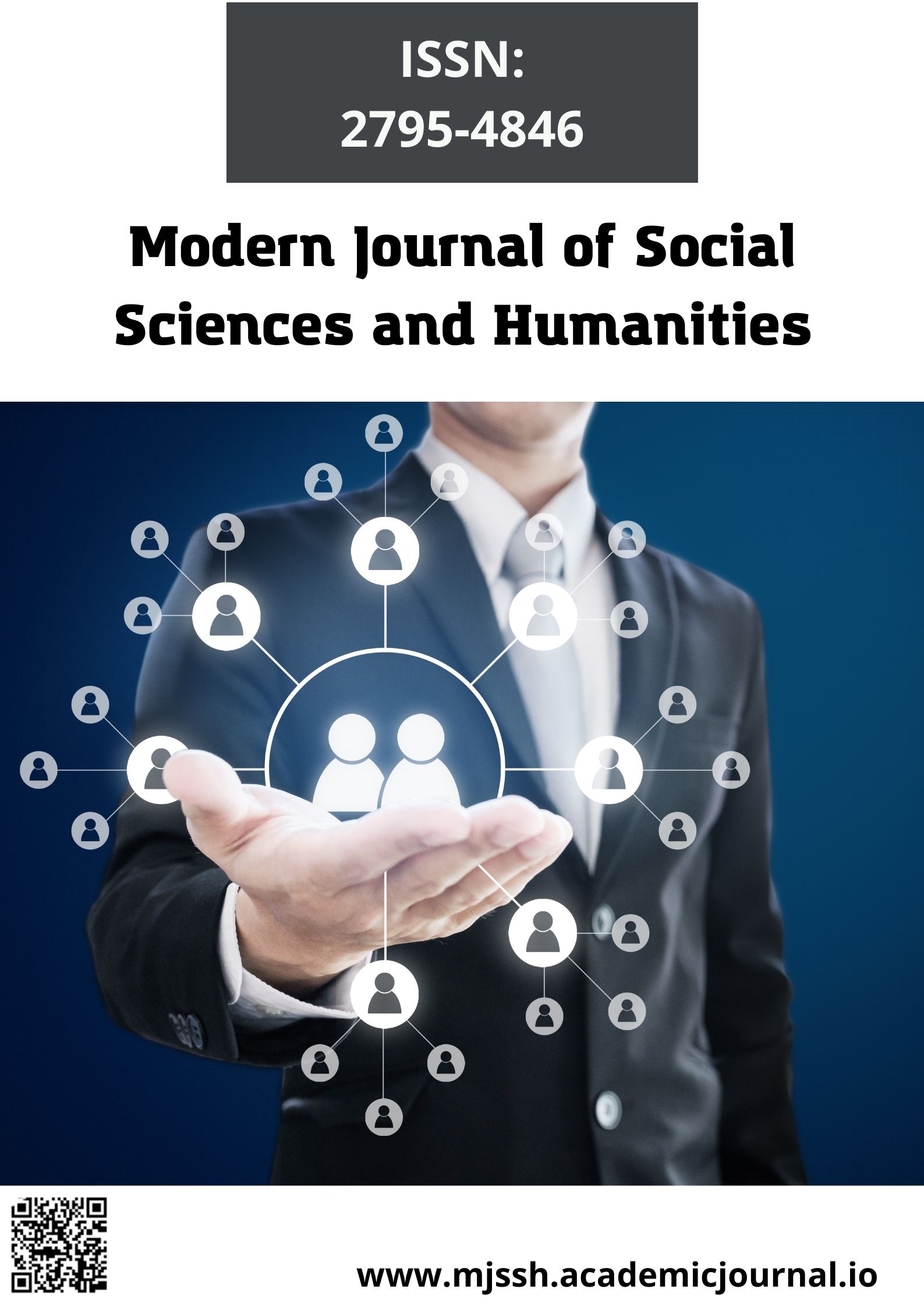Relevance Of Education To Economic Growth
Keywords:
Relevance, Education, Economic GrowthAbstract
Education is an important human capital investment that supports economic growth and development. Education is widely recognized as a fundamental driver of national development. Investments in education, from primary to tertiary levels, improve individuals' skills, knowledge, and productivity, resulting in increased economic production and productivity. This study emphasizes the various ways that education promotes economic growth. Educated people have higher employment and earning potential, which helps to minimize poverty and inequality in income. According to the report, education supports entrepreneurship, creativity, and technical improvement, all of which are necessary for long-term economic progress. Education also has an important role in the development of vital institutions, governance, and social welfare systems that are necessary for economic growth. It was argued that, while education alone cannot revolutionize an economy, it is an essential component of effective economic policies. Macroeconomic stability, infrastructure development, and openness to trade and investment all contribute to growth. Importantly, the extent to which growth lowers poverty is determined by the poor's ability to participate in and profit from the economic process, emphasizing the need of equitable educational access. The study concluded that investing in quality education at all levels is critical for generating long-term economic growth, especially in emerging countries. Policymakers must promote education as a major tool for decreasing poverty, enhancing social welfare, and promoting long-term prosperity
References
Abramovsky, L., Harrison, R., Simpson, H., & Toole, A. A. (2007). University research and the location of business R&D. The Economic Journal, 117(519), C114-C141.
Acemoglu, D. (2009). Introduction to modern economic growth. Princeton University Press.
Agada, J. C (2004). Basic concepts in sociology of education. Oweri: Divine Mercy.
Audretsch, D. B., & Thurik, A. R. (2004). A model of the entrepreneurial economy. International Journal of Entrepreneurship Education, 2(2), 143-166.
Barro, R. J. (2001). Human capital and growth. The American Economic Review, 91(2), 12-17.
Becker, G. S. (1964). Human capital: A theoretical and empirical analysis, with special reference to education. The University of Chicago Press.
Bhattarai, D., & Shrestha, D. P. (2015). Investment in Education and its Impact on Economy of Nepal. Journal of Advanced Academic Research,3, 117-128.
Card, D. (1999). The causal effect of education on earnings. Handbook of Labor Economics, 3, 1801-1863.
Emeni, J.E. & Nwafor, S.O. (2017). Budgetary allocation to education and poverty in the development of the Nigerian economy, 1980-2015. The Business Master. (Ignatius Ajuru University of Education), 4(3), 181-192.
Ernest, S. O. (2011). Government spending on education, economic growth and long waves in a CGE micro-simulation analysis: The case of Nigeria. British Journal of Economics, Finance and Management Sciences, 1(2), 74-87.
Fayolle, A., & Gailly, B. (2015). The impact of entrepreneurship education on entrepreneurial attitudes and intention: hysteresis and persistence. Journal of Small Business Management, 53(1), 75-93.
Grant, C. (2017). The contribution of education to economic growth. England: Institute of Development Studies.
Hanushek, E. A., & Woessmann, L. (2008). The role of cognitive skills in economic development. Journal of Economic Literature, 46(3), 607-668.
Hanushek, E.A., (2016). Will higher education improve economic growth? Oxford Review of Economic Policy 32, no. 4: 538-552.
Ifioma, E. B. & Ntaagah, A. (2013). Investment in education and economic growth in Nigeria, 1981 – 2012. West African Journal of Industrial and Academic Research, 9(1), 155-172.
Kuwar, P.R. (2021). Impact of education on economy. Triyuga Academic Journal, 2, 46-51.
Mincer, J. (1958). Investment in human capital and personal income distribution. Journal of Political Economy, 66(4), 281-302.
Mladen, M. I. (2015). Economic growth and development. Journal of Process Management – New Technologies, International, 3(1), 55-62.
OECD. (2015). In it together: Why less inequality benefits all. OECD Publishing.
OECD. (2020). Education at a glance 2020: OECD Indicators. OECD Publishing.
Romer, P. M. (1990). Endogenous technological change. Journal of Political Economy, 98(5, Part 2), S71-S102.
Sparreboom T. & Staneva, A. (2014) Is education the solution to decent work for youth in developing economies?: Identifying qualifications mismatch from 28 school-to-work transition surveys. International Labour Office. Geneva: ILO. http://www.ilo.org/employment/areas/youthemployment/work-for-youth/publications/thematic-reports/WCMS_326260/lang--en/index.htm.
UNESCO, (2010). The Central Role of Education in the Millennium Development Goals, MDG Summit High-Level Round Table, 22/09/2010, United Nations, New York Secondary education. http://www.unesco.org/fileadmin/MULTIMEDIA/HQ/ED/ED_new/images/education_for_all_intern ational_coordination_new/PDF/analyticalnote.pdf.
UNESCO, (2012). UNESCO global monitoring report. http://unesdoc.unesco.org/images/0021/002180/218003e.pdf.
UNESCO. (2014). Roadmap for implementing the global action programme on education for sustainable development. UNESCO Publishing.
UNESCO. (2015). Rethinking education: Towards a global common good? UNESCO Publishing.
UNESCO-UNEVOC. (2018). TVET and the sustainable development goals: A contribution to the un 2030 agenda for sustainable development. UNESCO-UNEVOC International Centre.
Venables, (2006). Economic growth and national finance of public services. https://www.oecd.org/derec/unitedkingdom/40700982.pdf.
Woessmann, L (2015). The economic case for education, Education Economics, Volume 24. http://www.tandfonline.com/doi/abs/10.1080/09645292.2015.1059801?journalCode=cede20.
World Bank. (2018). Poverty and shared prosperity 2018: Piecing together the poverty puzzle. World Bank Group.






